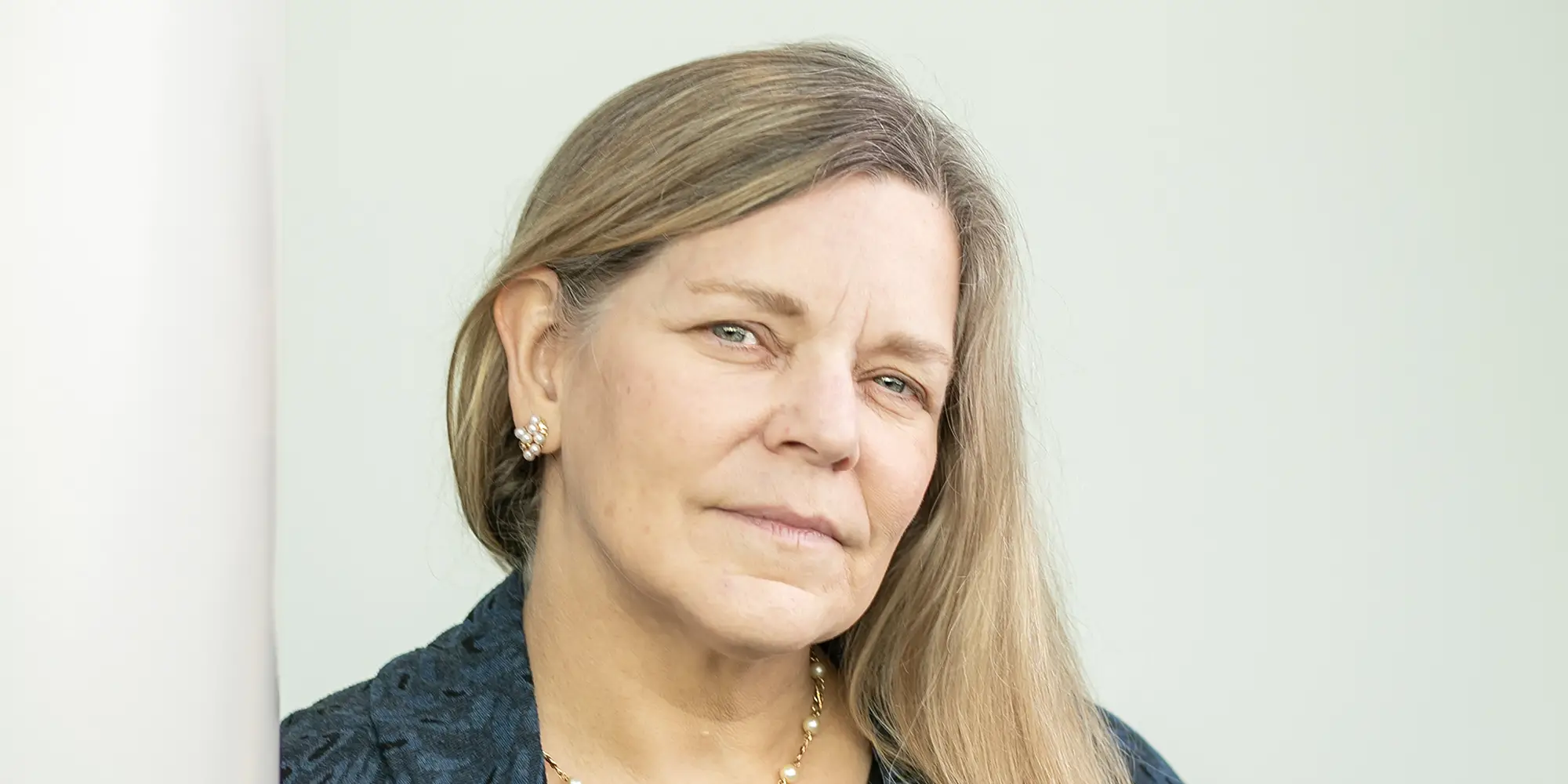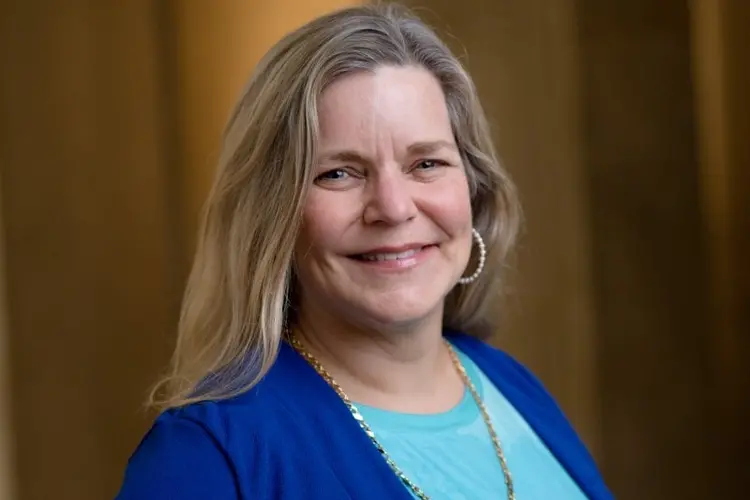
Barbara Shinn-Cunningham Named Mellon College of Science Dean
Media Inquiries
Barbara Shinn-Cunningham has been named Carnegie Mellon University’s Glen de Vries Dean of the Mellon College of Science(opens in new window) (MCS), effective Jan. 1, 2025.
Shinn-Cunningham, who will be the eighth dean to lead MCS, joined Carnegie Mellon in 2018 as the founding director of the Neuroscience Institute(opens in new window) and the George A. and Helen Dunham Cowan Professor of Auditory Neuroscience. She holds courtesy appointments in the departments of Psychology(opens in new window), Biomedical Engineering(opens in new window) and Electrical and Computer Engineering(opens in new window).
“Dr. Shinn-Cunningham’s appointment as the next dean of MCS marks an exciting next chapter for the college,” said Carnegie Mellon Provost James H. Garrett Jr.(opens in new window) “Her distinguished research background and proven leadership skills position her to propel the future of science initiative forward and guide MCS toward even greater heights."
A lifetime of scientific discovery
Before joining CMU, she spent 21 years on the faculty of Boston University(opens in new window). In addition to directing the Neuroscience Institute at Carnegie Mellon, Shinn-Cunningham leads two large-scale Multidisciplinary University Research Initiative(opens in new window) projects funded by the Office of Naval Research, each of which uses researchers from different backgrounds at different institutions to address problems that cannot be solved through individual disciplines.
“Interdisciplinary approaches erase boundaries that have traditionally separated fields of study, thereby accelerating scientific discovery. Such collaboration is part of CMU’s DNA, a fact that attracts some of the most creative and broad-thinking scientists to the Mellon College of Science. I am thrilled and humbled to lead MCS in its next phase of innovation," Shinn-Cunningham said.
An author of more than 200 scientific articles, she is recognized for her expertise in spatial hearing, auditory attention and sensory hearing deficits. She has degrees in electrical engineering from Brown University(opens in new window) and the Massachusetts Institute of Technology(opens in new window). Her research combines behavioral, neuroimaging and computational methods to understand how the brain processes sound. She has received honors from the Alfred P. Sloan Foundation, the Whitaker Foundation(opens in new window) and the Vannevar Bush Fellows(opens in new window) program.
Shinn-Cunningham is the president of the Acoustical Society of America (ASA), and in 2019, she accepted its Helmholtz-Rayleigh Interdisciplinary Silver Medal(opens in new window) in Psychological and Physiological Acoustics, Speech Communication, and Architectural Acoustics. She previously served as the treasurer/secretary of the Association for Research in Otolaryngology(opens in new window). Her mentorship has been recognized by awards from both the ASA and the Society for Neuroscience. She is a Fellow of the ASA(opens in new window), a Fellow of the American Institute for Medical and Biological Engineering(opens in new window), and a lifetime member of the National Research Council. She serves as a senior editor for eLife(opens in new window).
The search for the next dean of MCS
Shinn-Cunningham was selected following a yearlong search(opens in new window) led by Keith Webster(opens in new window), the Helen and Henry Posner, Jr. Dean of the University Libraries.
“I am grateful to the search committee for leading a thorough search. They carefully listened to the needs of the MCS community, fielding a strong applicant pool to ultimately identify Barb Shinn-Cunningham as the best person for this critical leadership role. I appreciate the time and thoughtfulness they put into their work,” Garrett said.
She succeeds Rebecca Doerge, who served as dean from 2016-23 prior to being named provost of Rensselaer Polytechnic Institute in Troy, New York. Curtis Meyer(opens in new window), the Otto Stern Professor of Physics and associate dean for research has served as interim dean since Aug. 1, 2023. Meyer has been a member of the MCS faculty for more than 30 years and will return to his faculty position.
“Curtis Meyer has done an outstanding job stepping in as interim dean, leading the college during this important transition period,” Garrett said. “I am thankful for his leadership and grateful for his service in this interim capacity as we conducted the search.”
A home for the future of science
Carnegie Mellon’s Mellon College of Science is at the forefront of the university’s future of science initiative(opens in new window), a decade-long effort to revolutionize and accelerate research and education, leading to innovations and breakthroughs that will benefit humankind.
MCS currently has more than 900 undergraduate students and 470 graduate students. The college offers more than a dozen graduate programs to prepare students for careers in the sciences.
"Science education and exploration benefit by leveraging CMU's strengths in computation, machine learning, engineering and data analytics to address opportunities in foundational science. I look forward to celebrating and supporting the successes of MCS students, staff and faculty,” Shinn-Cunningham said.
Home to the departments of Biological Sciences, Chemistry, Mathematical Sciences, and Physics, MCS also hosts many interdisciplinary research centers. MCS faculty members and leaders were instrumental in bringing the first academic cloud lab(opens in new window) to the university, which opened earlier this year to usher in a new era of scientific discovery.
When the new Richard King Mellon Hall of Sciences is completed in 2027, chemistry(opens in new window) and biological sciences(opens in new window) researchers will be physically located near neuroscience(opens in new window), machine learning(opens in new window), language technologies(opens in new window) and computational biology(opens in new window) faculty allowing for cross-pollination and innovation. All of this will accelerate and enhance discovery in the foundational sciences with real-world impacts through computation, engineering, artificial intelligence and data analytics.
MCS is home to 10 of the university’s 20 Nobel laureates, including John Nash Jr., who earned his bachelor's and master's degrees in mathematics in 1948 and won the Nobel Prize in Economic Science in 1994. Among some of the innovations from the college include Professor Alan Waggoner’s CyDye labeling technologies, fluorescent dyes that have been widely commercialized and have made a profound impact on biomedical research; internationally renowned Professor Krzysztof Matyjaszewski(opens in new window) developed atom transfer radical polymerization, which transformed the way plastics are made; and alumna Stephanie Kwolek, a 1946 graduate, invented Kevlar, the fabric used in bulletproof vests.
The Mellon College of Science was founded in 1967, when the Carnegie Institute of Technology merged with the Mellon Institute of Industrial Research to form Carnegie Mellon University.
Carnegie Mellon University alumnus and Board of Trustee member Glen de Vries endowed the chair of the MCS dean and provided funds for future of facilities. The gift provides resources for deans to invest in fundamental sciences, interdisciplinary initiatives, faculty and students. A 1994 graduate of MCS and co-founder and president of Medidata, de Vries was one of the university’s most ardent supporters before his death in 2021.



